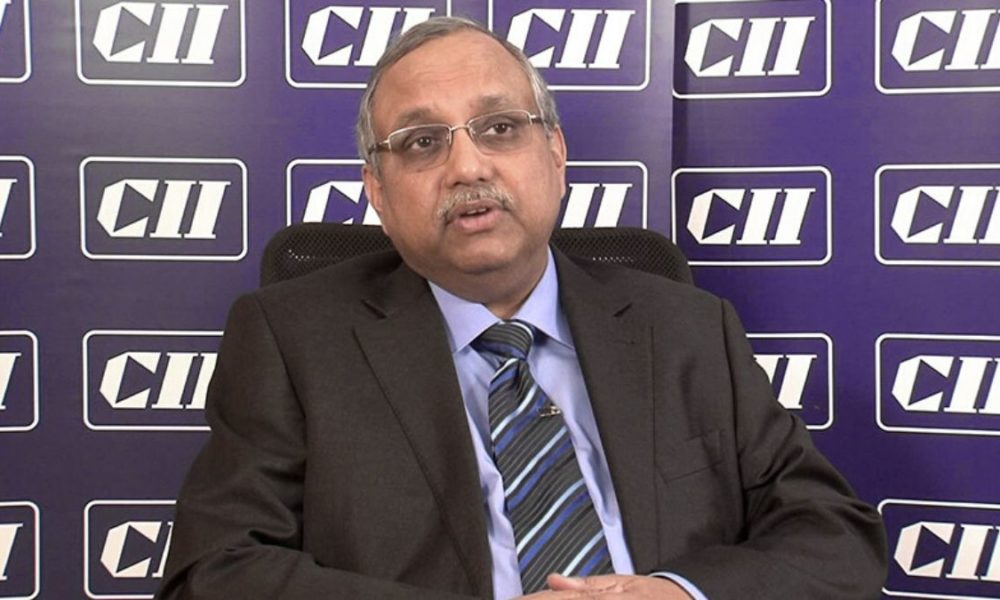Union Finance Minister Nirmala Sitharaman unveiled first in the series of economic measures as part of the Rs 20 lakh crore stimulus announced by the Prime Minister. India Inc has given a thumbs-up to the focus on MSMEs which are facing severe credit squeeze. CII DG Chandrajit Banerjee spoke to The Daily Guardian on the impact these measures would create. Edited excerpts
Q. The MSME package was in the works for some time. Are you satisfied with the scale and the scope of assistance being given to MSME?
A. The support announced to the MSMEs today was on expected line. In my assessment, the big highlight of the package is the 100% guarantee in the collateral free loans totalling Rs 3 lakh crore to the sector. The other extremely significant policy decision has been the change in the definition of what comprises MSMEs.
This has been a long-standing demand and this will be a very strong game-changer. It’s been 14 years since the MSME definition was changed which had become quite outdated. Incorporation of both investment and turnover in the definition and ending the distinction between manufacturing and services are extremely positive steps. Payment of delayed dues to MSMEs within 45 days will address issue of liquidity for the sector.
Q. How significant are the policy measures for NBFC and housing finance space? That is another area witnessing tremendous fund freeze.
A. Low credit rating is hurting liquidity and impacting lending to individuals and corporates. The measures announced today will ensure banks are able to overcome risk aversion and enable full fructification of RBI’s intervention announced so far. Government of India must step in through appropriate channels must step in to provide 20-30% of partial credit guarantee as a back-stop facility to banks to cover their risks in investments. This back-stopping facility in the form of Rs 30,000 crore of additional liquidity for struggling NBFC is an important announcement.
Q. How soon do you expect these announcements to translate into some positive economic impact?
A. Initially CII had estimated that the economic damage as a result of lockdown due to Covid would impact two quarters before it bottoms out. The measures announced t o d ay w o u l d certainly alleviate some of the economic damage. The consequence of the measures announced today will be in terms of fewer companies that will go bankrupt. With funds being made available there will be fewer “dead companies” and it also mean that the banking sector and the larger non-banking space which will be very stretched and staring at huge NPAs may be able to negotiate these headwinds better. I think both MSMEs and banks have enough ammunition to navigate through these challenging times.
Q. Would you have liked the government to provide full details of how it will fund the measures announced today?
A. In due course of time there should be more clarity in terms of funding of these measures. I am hopeful that the government will provide borrowing details soon. Today’s measures total Rs 6 lakh crore which is a significant expenditure and the fiscal math would have been worked out.
I am also hopeful that the next focus of the government would be towards implementing the factor reforms that the Prime Minister had mentioned. Land, labour and productivity measures have to be brought about. Additionally, ease-of-doing business is one area that needs to be prioritised by the government. Essentially, ease of implementation is key to the reforms that are being announced right now.
Q. You mentioned two quarters are expected to be a wash out for Indian economy. Will the measures announced today reduce that time? Do you think the turnaround will now be faster?
A. Yes, there will be some positive impact for sure. Indian economy was heading for a crash-landing and it would have seen many dead enterprises and a colossal impact on growth. A lot of that scenario has been addressed now. The measures announced today will cushion the impact of coronavirus and also ensure the turnaround may not be as late as six months. But we are expecting the government to focus on specific sectors that are worst hit — like aviation or hospitality, amongst others. The stress in some of these areas is extremely high and will need government intervention.







